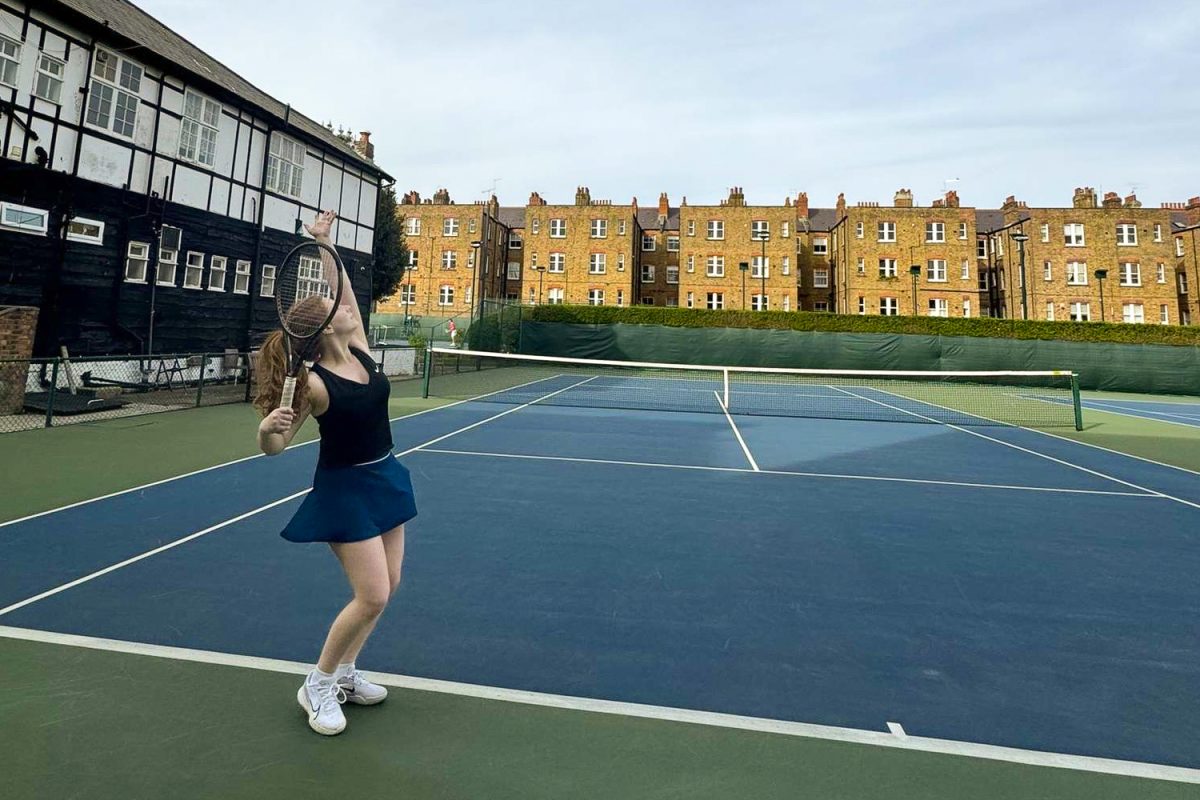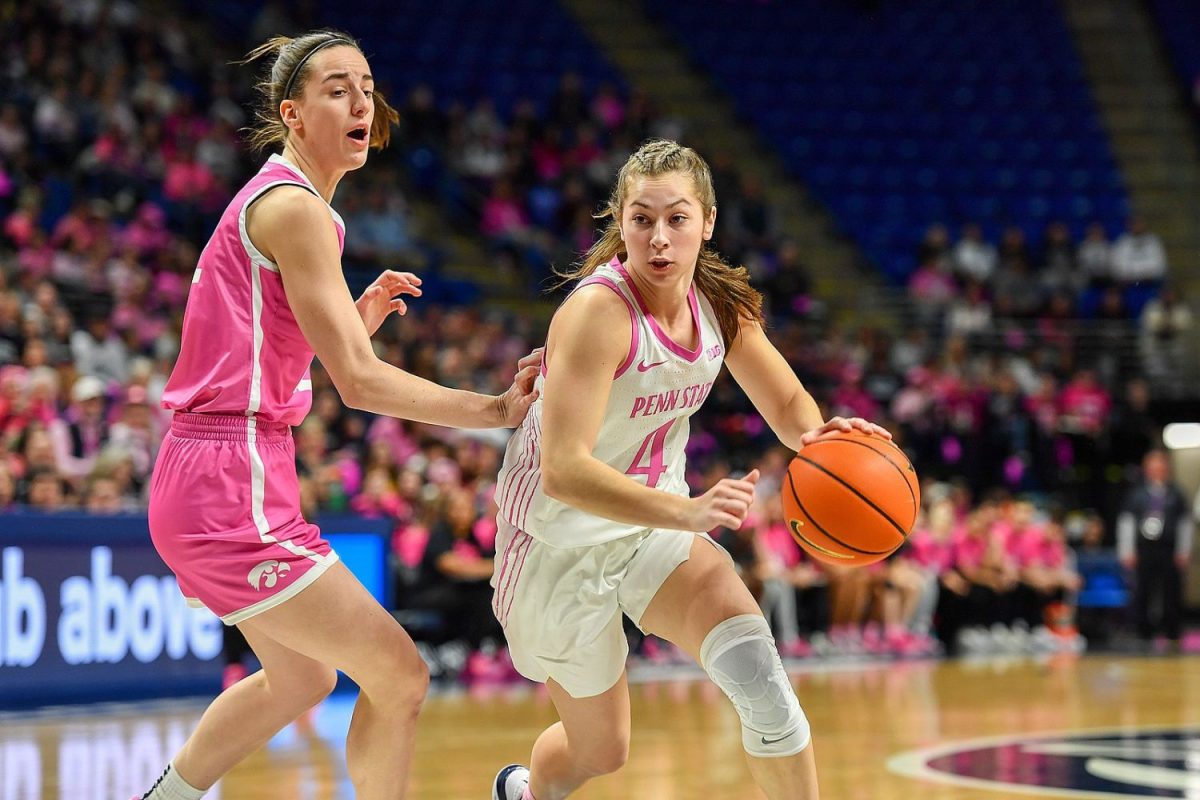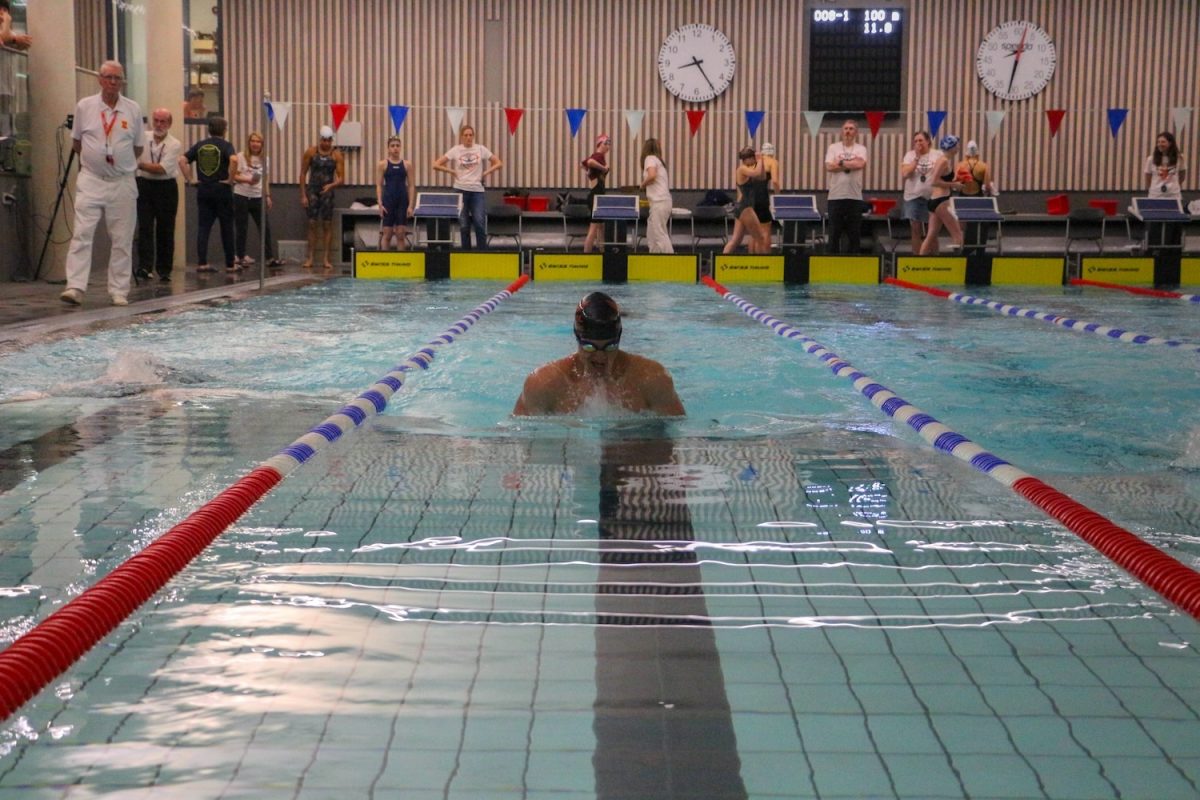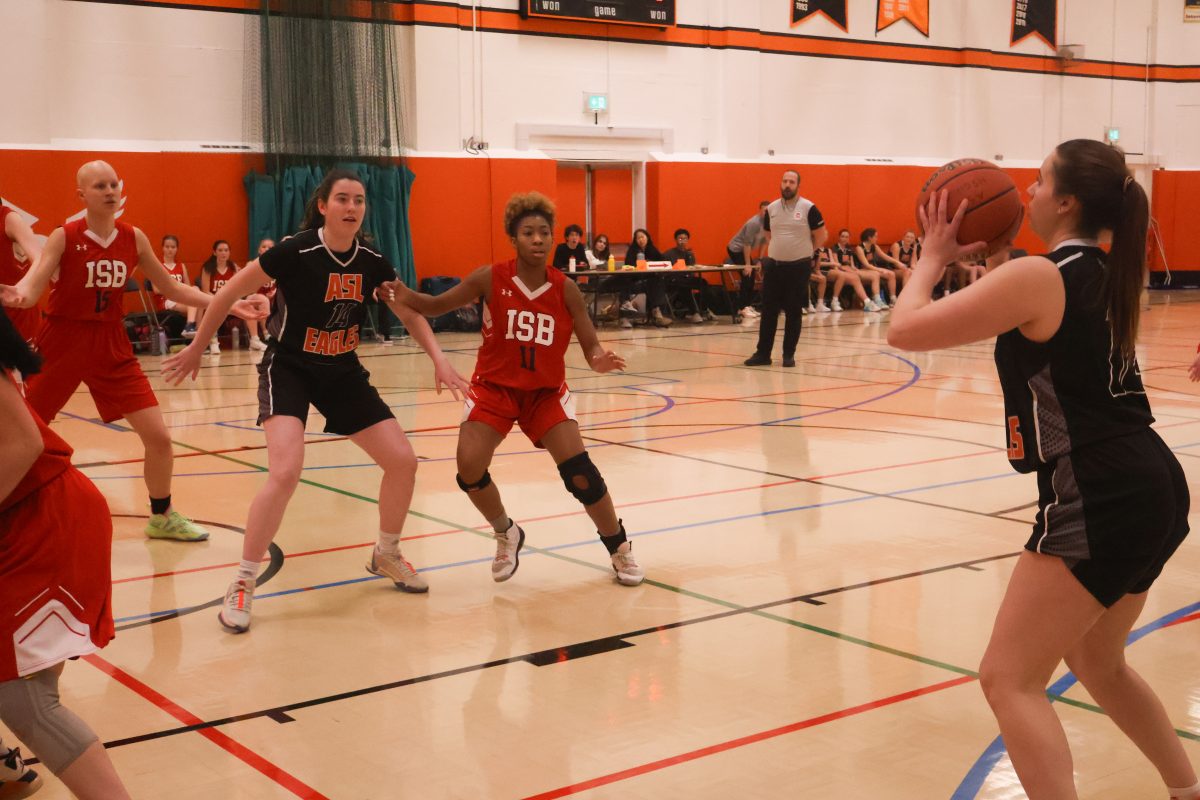The gym is pitch-black and he can barely see the rim, but Will Sayre (’17) is still shooting. He moves swiftly to collect his rebound and shoots again. His emotions are too confusing to figure out right now – all he knows for sure is that he needs to keep moving.
Sayre, a member of the varsity boys basketball team, is as used to the feeling as he is the setting. Earlier that night, the team had secured a victory against historic rival, ACS Cobham, in a hard fought contest, albeit one in which Sayre played very few minutes.
This was not the first time that Sayre, feeling restless, had taken his basketball and ventured into the dark confines of the gym after a game. The only difference was this time his emotions rendered him more uneasy than usual. “You kind of lose your sense of being on the team when you are watching the guys celebrate after a win but you didn’t play,” Sayre said. “It’s kind of a selfish feeling, but it’s conflicting in that, yeah, you won the game, but you didn’t play at all – they would have won the game without you.”
That night, Sayre’s level of self-doubt – the feeling that “there is a distance between yourself and the team,” which Sayre believes can be common for players who regularly receive less game time than their teammates – was more of an exception than a rule to his usual personality.
Contrary to the belief that a player can only provide for his or her team when they are on the field, Sayre can personally speak to value of a bench experience. “While painful and frustrating, it is necessary in improving your game because you have to be able to observe and watch others, and watch great players play,” Sayre said. “I definitely learned a lot more about basketball this year, and I know that it’s necessary for moving on to the next level.”
Courtney Welch (’16), a member of the varsity girls soccer team, would agree that there is more to the bench than just waiting until her name is called. “I was definitely there more to have fun, because I knew if I wasn’t playing I didn’t have to be so mentally focused,” Welch said. “During games I knew I was there to support the team and help people relax and be prepared.”
Like Welch, Andrew Skow (’17) has gone to great lengths to ensure the bench is more important and more influential for his team, the varsity boys baseball team. “When I was on the bench I kept myself entertained and into the game by doing the pirate talk (the baseball team tradition of “heckling” their own players in a pirate voice), instead of just sitting back and watching,” Skow said. “It keeps me focused and although I may not be physically involved all the time, I am mentally engaged.”
However, without actively seeking an alternative, or a way to contribute to the team, Skow believes this perception – where the bench is “not involved” or “not useful” – is present. “It comes down to the mentality of the players to change the mentality of how that team views what a bench player is,” he said. “If all they do is sit back and watch and aren’t really engaged, then the bench is still shrouded in this dark and scary thing that no one wants to do or be on.”
A mentality which Skow has tried to uphold, and believes is necessary for all bench players to thrive, is the belief that he is just as much a part of the team and just as influential as every other player. “Even if I am on the bench I can make a difference,” he said. “It might not be as easy to see as making an outstanding catch in the 9th inning to save the game, but I think every player on the team, if they are willing to be a team player, can make a difference.”
This mentality can often be reciprocal. Undoubtedly, “it definitely feels happier when you’re the one out there or you’re the one scoring the goal,” Welch said. But on her team, “we all got so close; no one treats me differently because I don’t play as much.”
Emma Hatheway (’15) echoed Welch’s sentiments. While not a starter on the girls varsity soccer team, she wasn’t treated any differently. In fact, she was looked to for guidance by her younger teammates. “I helped the younger players to find their roles and feel comfortable and connected within the team,” she said.
Off the court, Sayre also feels “100 percent part of the team. If you’re a bench player there are obviously some more jokes thrown at you, but besides that, they are no less part of the team,” he said. “[Off the court] it is a reassurance that you are part of the team. Everyone is put on the same stage off the court.”
However, it is on the court that Sayre feels “the distance” between the bench players and the rest of the team grows. “I know for me I would talk to guys, give pointers, be a motivator, but in reality it’s kind of an empty feeling, it was like watching some other team play,” he said.
This feeling, for him, usually intensifies after the whistle has blown, when, regardless of the result, he often feels stuck in a kind of limbo. “When you don’t play but the team does well, oftentimes you don’t know what to do,” he said. “Should I be happy even though I didn’t really do anything? Or should I be upset after a loss that I didn’t really do anything in? Should I be crying as well?”
And, despite the vast learning experience and enthused support that the bench can provide, Sayre is quick to correct the fact that spending time on the bench could ever be “fun”. “As much as I tell myself this is a learning experience, I hate it,” Sayre said. “I absolutely hate sitting on the bench, but it’s something you just have to swallow and keep going. You’ll take what you can from it. No one enjoys sitting on the bench, the learning is just me trying to find a positive in what I’m doing.”
Welch would agree: It’s hard to be a bench player. “It’s not for everyone, you have to enjoy the sport enough and not just be on it to have the glory of winning, because if you don’t love the game then going out to Canons Park everyday and not playing in the games isn’t going to be fun. The person has to be hardworking enough and dedicated,” she said.
Hatheway believes each player will find something that he or she is passionate about – something to keep them engaged and dedicated. For Hatheway, there were times when it didn’t matter whether she played or not. “At times the bonding that was being made and the experiences that came along with it were more important to me than [playing time],” she said.
For Welch, because she has other sports like basketball and softball, where she is relied on for significant amounts of playing time, she likes the fact that her role on the soccer team is “not as mentally stressful. It’s not the same feeling that you always have to perform your best, I like the balance.”
A deep trust in his coach and team is what helps Skow navigate his bench experience. “You have to know that even if they make a mistake – because you can’t be like, ‘look at John, he just fumbled that ball, why aren’t I playing out there,’ – you have to have the faith that your coach has made the right decision,” he said.
Ultimately, he believes the bench experience is only as fruitful as one makes it. “I have taken it upon myself to make the bench more of an experience,” Skow said. “Some players on the bench just sulk; they have that mentality of ‘oh, why am I not playing, why is he playing?’ [But] I’m just there to enjoy the game, I’m not there to question the decisions; I’m going to make the best of any situation that I’m put in.”







